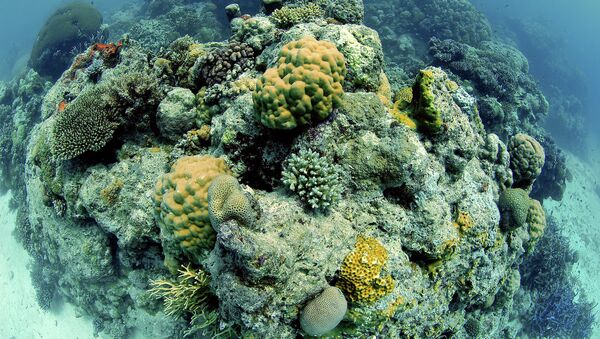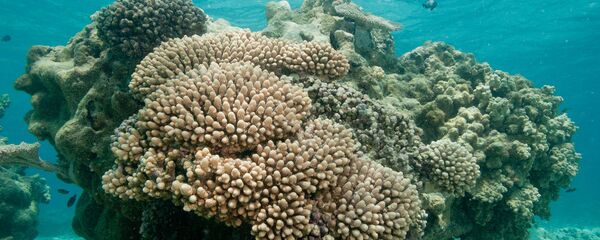Coral is a living thing, a close relative of sea anemones and a distant cousin of jellyfish. Coral polyps form a colony in which they produce calcium and form an exoskeleton, also cultivating a symbiotic relationship with a type of algae called zooxanthellae. These single-cell life forms have a symbiotic relationship with the coral, consuming the reef's carbon dioxide, and other waste products. They also give reefs their fabulous colors.
Under stressful conditions, such as high water temperatures brought on by the 2014 El Niño event, the coral ejects the zooxanthellae. As the water cools, it then cultivates new algae, unless the water does not cool, in which case the coral suffocates on its own waste.
This is exactly what is happening to the Great Barrier Reef, according to Neal Cantin from the Australian Institute of Marine Science. "We are seeing a decrease in the stress tolerance of these corals," Cantin said in a statement. "This is the first time the Great Barrier Reef has not had a few years between bleaching events to recover."
Not all the bleached coral will die, but the trend is alarming. "This isn't something that's going to happen 100 years from now. We're losing them right now," said marine biologist Julia Baum of the Canadian University of Victoria to the Times of India. "We're losing them really quickly, much more quickly than I think any of us ever could have imagined."
The effects of a coral die-off could be far-reaching. Many only know coral for its spectacular colors which make popular tourist attractions for countries like Australia, New Zealand, and the Philippines. Coral reefs also provide barriers for storms that cushion their impact against coastlines, hence the use of the word 'barrier.' Stanford University estimates that a full 25 percent of marine species rely on coral reefs to survive, as well as 500 million humans.
"Whether you're living in North America or Europe or Australia, you should be concerned," said biologist Ove Hoegh-Guldberg with the Australian University of Queensland. "This is not just some distant dive destination, a holiday destination. This is the fabric of the ecosystem that supports us."



